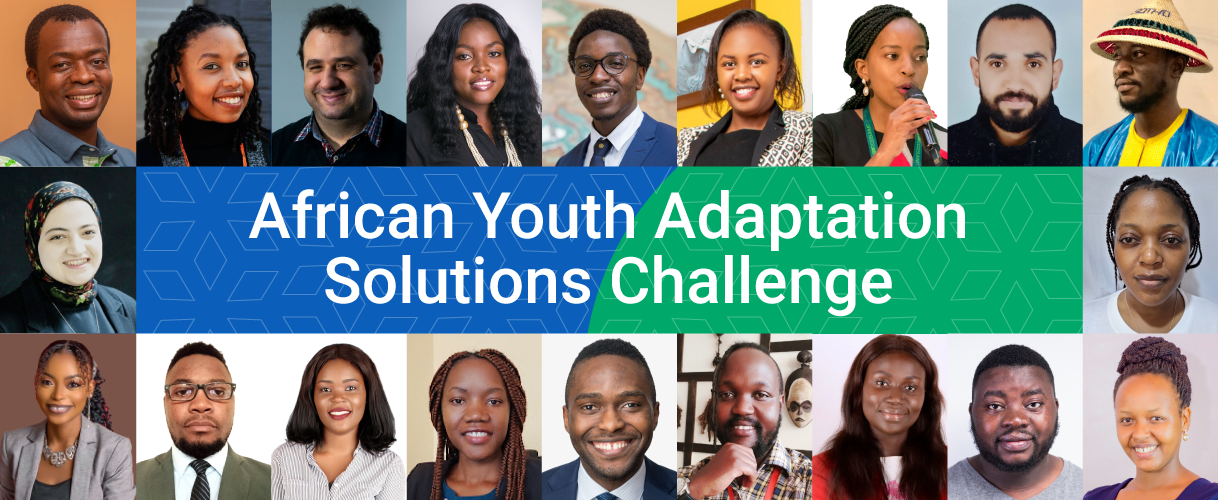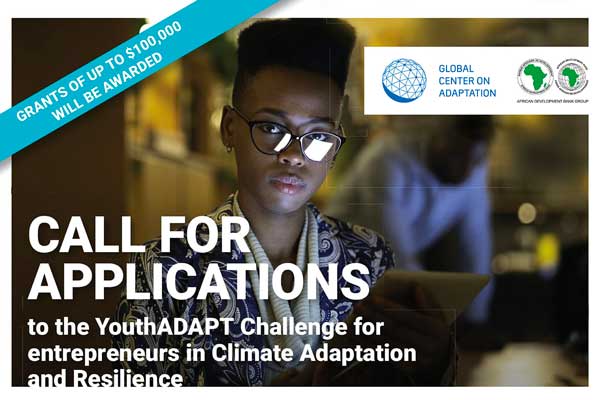
AAAP in the Media
Displaying 1 - 3 of 3
Digital Climate Adaptation Solutions Training – Southern Africa
Harnessing the power of technological innovations and digitalization to improve agricultural productivity and strengthen climate resilience has been recognized as one of the potential game changers to address many of pressing climate concerns and rural transformation challenges facing Africa today.
Digital climate-informed advisory services are tools and platforms that integrate climate information into agricultural decision-making. These services range from digital mobile apps, radio, and online platforms to digitally enabled printed bulletins based on climate models and extension services that utilize climate information platforms. DCAS offers crucial opportunities to build the resilience of small-scale producers in the face of worsening climate change impacts, particularly when bundled with complementary services (such as financing, input supply, market access, insurance).
The objectives of the DCAS trainings are as follows:
- Capacity enhancement for agricultural stakeholders across Southern Africa in DCAS
- Supporting trainees to improve their confidence and capacity to design and implement DCAS projects to reach the last mile and farmers for improved food security and climate resilience
- Facilitating knowledge/experience sharing of participants on contextual issues and approaches to scale up DCAS
- Increase the knowledge of stakeholders from across Southern Africa on opportunities and new approaches for the design, mainstreaming and use of digital tools and data-enabled agriculture to combat the effects of climate change
- enhancing capacity to use digital agriculture advisory services and solutions to ensure uptake by of DCAS among stakeholders in Southern Africa
- Over 50 Participants trained in digital agriculture and digital climate adaptation solutions
- A new cohort or platform of African public officials, researchers, farmers organizations leaders and agricultural NGO focal points with improved expertise in DCAS (for subsequent experience capitalization follow up and training)
- Training evaluation assessment report
- Improved understanding / knowledge of target stakeholders in Southern Africa through training and information sharing including lessons learned on the challenges, opportunities and new approaches to the design, mainstreaming and use of DCAS and data-enabled agriculture
- Enhanced capacity of selected agricultural stakeholders in public institutions and farmers groups across Southern Africa to use digital agriculture advisory solutions, implement digital climate smart advisory solutions, and train their members/colleagues to use DCAS tools
€100,000
Programme for Integrated Development and Adaptation to Climate Change in the Zambezi River Basin (PIDACC Zambezi)
Zambezi River Basin, in Southern Africa Region, has the largest drainage basin (1.4 million km2) with rich variety of natural resources, covering parts of eight riparian states namely Angola, Botswana, Malawi, Mozambique, Namibia, Tanzania, Zambia, and Zimbabwe. Despite this potential, riparian states are struggling to cope up with worsening ecological circumstances, environmental degradation, global warming, and climate change, which have created conditions of chronic vulnerability, food insecurity, and economic hardships
The objective of the project is to strengthen regional cooperation in building the resilience of the Zambezi River Basin communities to climatic and economic shocks, through promoting inclusive, transformative investments, job-creation, and ecosystem-based solutions.
- Identified climatic risks to major agricultural value chains and digital technologies that have the potential to accelerate climate adaptation in the Zambezi River Basin
- Prepared national profiles on digital adaptation in agriculture for the various countries of the Zambezi River Basin, a summary of the prevalent adaptation techniques among smallholder farmers, and the key institutional, policy and human capital challenges to digitization
- Actionable design and engagement opportunities, which will mainstream digital climate advisory services into the implementation of the PIDACC program
- Benefit about 800,000 (60% women and 10% youth) within hotspot areas, and indirectly the whole population
- Improved access to water, climate smart agricultural technologies, and community-level infrastructure for irrigation and markets
- Associated benefits include multi-sectoral utilization of shared water resources within the context of integrated land and water resources development and management, gender equality and social inclusion
- Strengthened institutional capacities and mechanisms for coordination of Basin monitoring, planning, and management
- Increased demand-driven community-level feasible climate resilient infrastructure that would support livelihoods
- Reinforced inclusive and diversified climate resilient livelihoods support through enhanced agribusiness and small & medium enterprises (SME) development
- Developed and improved livelihoods, including job creation by enhancing agribusiness through investments in water, sanitation, energy, human capital, and agriculture sectors
- Support adaptive capacity of communities with a view to avoid, reduce and reverse land degradation and effectively manage water
AfDB Investment of USD16.7 million of total USD19.4 Million
Global Center on Adaptation and African Development Bank call for applications for the African Youth Adaptation Solutions Challenge

 The Global Center on Adaptation (GCA) and the African Development Bank have launched a call for applications for the first edition of the African Youth Adaptation Solutions (YouthAdapt) Challenge.
The Global Center on Adaptation (GCA) and the African Development Bank have launched a call for applications for the first edition of the African Youth Adaptation Solutions (YouthAdapt) Challenge.
The call encourages young entrepreneurs, innovators from micro, small and medium-sized enterprises (MSMEs) and other youth-led and youth-owned enterprises in Africa, to implement solutions for building resilience and adapting to the adverse impacts of climate change. Young entrepreneurs between the ages of 18 and 35 are invited to respond to the call for the expression of interest and submit their business plan through the official submission portal.
With a strong focus on youth and gender, winners of the YouthAdapt Challenge will be awarded business grants of up to $100,000 each and the opportunity to participate in a 12-month business accelerator program to help them scale up their businesses, deepen their impact and create decent jobs. In addition, the winning youth-led enterprises will be provided with mentorship and support to expand partnerships, knowledge sharing and learning through a network of young entrepreneurs in climate adaptation.
The African Youth Adaptations Solutions Challenge is part of the ‘Empowering Youth through Jobs and Entrepreneurship’ pillar of the Africa Adaptation Acceleration Program (AAAP), a strategic partnership between the GCA and the African Development Bank aimed at galvanizing climate-resilient actions through a triple win approach to address the impacts of Covid-19, climate change and the economy.
The competition aims to leverage the resources, complementary expertise and networks of both organizations to support the ‘missing-middle’ of mid-sized companies in the areas of funding, thereby promoting sustainable climate adaptation and resilience practices on the African continent.
Announcing the YouthAdapt Challenge to a group of global leaders at the High-Level Dialogue: The Adaptation Acceleration Imperative for COP26 held in Rotterdam, Netherlands on Monday 6th September 2021, Patrick Verkooijen, CEO of the Global Center on Adaptation said: “Our vision is to empower one million young people in Africa with the financing and skills they need to pursue jobs and careers in climate adaptation. With this new challenge we aim to unlock the business opportunities in adaptation action by innovative youth-owned enterprises and prepare a new generation of African youth for the transition towards green and climate-resilient development.”
“The YouthAdapt Challenge will unleash the entrepreneurial drive and capacities of African youth to grow their businesses, address the continent’s pressing climate challenge and create decent jobs, building a more climate-resilient Africa”, said Akinwumi Adesina, African Development Bank’s President, affirming the Bank’s commitment to invest in the youth.
Twenty youth-led enterprises will be shortlisted at the end of the application window on 6th October 2021 and invited to submit videos for a jury panel review ahead of the finals and an award ceremony at COP26 in Glasgow on November 8, 2021. At this event, ten winners will be selected, 50% of which will be women-led enterprises.